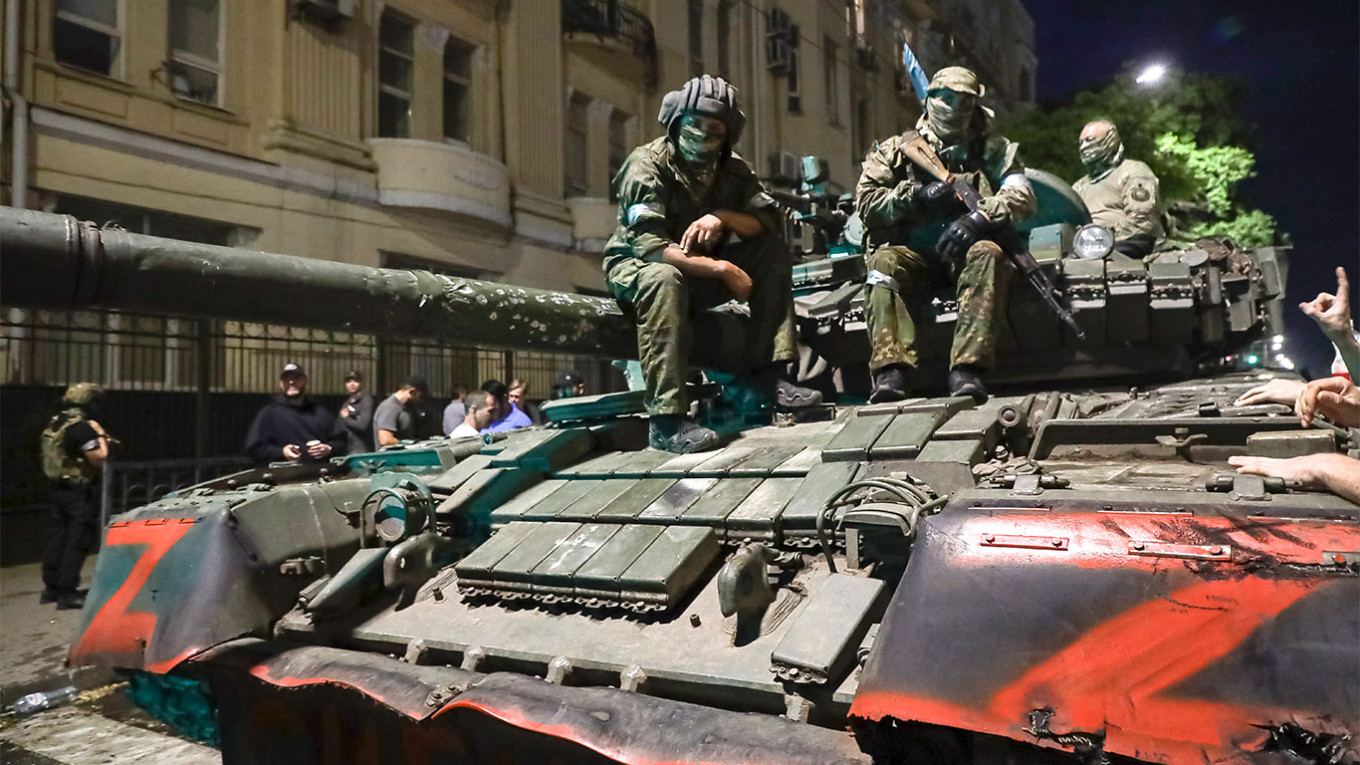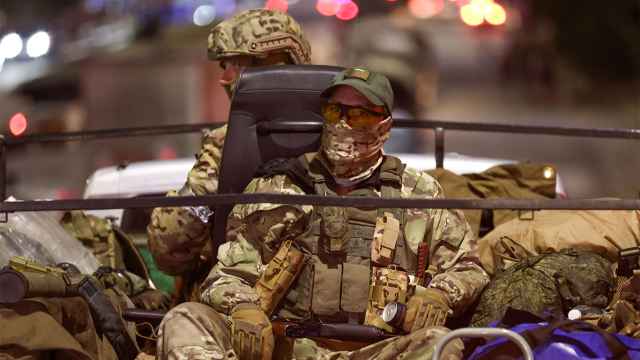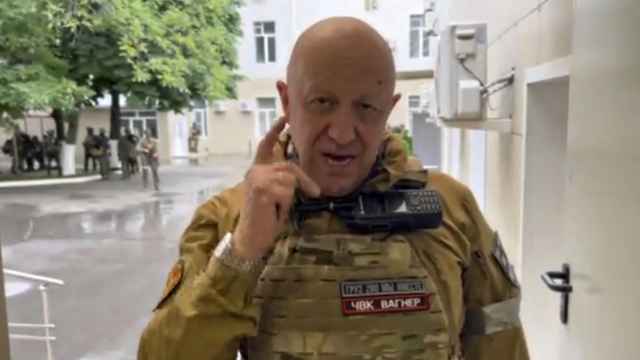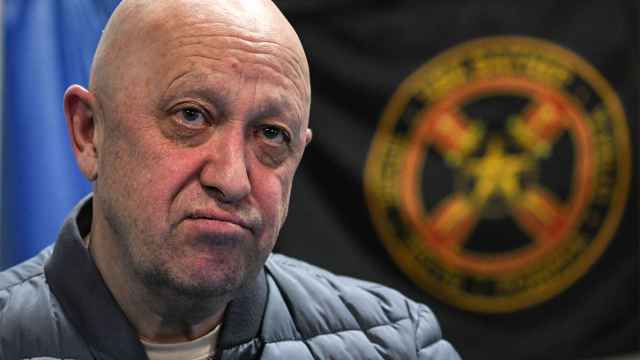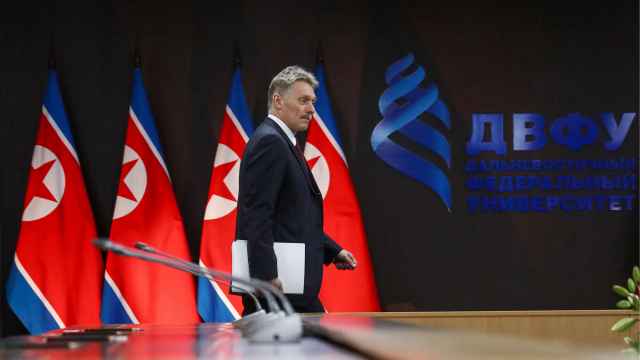Wagner mercenaries came close to reaching one of Russia’s nuclear weapons storage sites during their short-lived revolt last month, Reuters reported Tuesday, based on accounts from Ukrainian and Russian officials, local residents, and geo-located videos of the fighters.
Reuters said it tracked the movements of a 75-vehicle Wagner column that split off from the main convoy advancing from southern Russia to Moscow on June 23 and reached as close as 110 kilometers from the Voronezh-45 military base.
Voronezh-45 is a nuclear weapons storage site operated and guarded by part of the Russian Defense Ministry’s 12th Main Directorate, which is responsible for protecting the country’s nuclear arsenal.
Local residents reported sporadic gunfire and explosions along Wagner’s route, including the downing of a Russian military helicopter at the small column’s last identifiable location in the Voronezh region town of Talovaya.
One resident told Reuters that Wagner fighters remained in Talovaya until Sunday when they turned around and returned south.
But the head of Ukraine’s military intelligence Kyrylo Budanov suggested — without providing evidence — that an unspecified number of Wagner fighters pressed on to Voronezh-45 and “came close” to acquiring nuclear weapons and escalating the mutiny.
“The doors of the storage were closed and they didn’t get into the technical section,” Budanov told Reuters in a video interview.
Nuclear weapons experts told Reuters that even if Wagner fighters had managed to acquire nuclear weapons, they would have found it “virtually impossible” to break through several layers of security to assemble or detonate the bombs
Others cast doubt on whether the specific nuclear weapons stored at Voronezh-45 were operational, characterizing them as “old crap stuck in storage.”
A Message from The Moscow Times:
Dear readers,
We are facing unprecedented challenges. Russia's Prosecutor General's Office has designated The Moscow Times as an "undesirable" organization, criminalizing our work and putting our staff at risk of prosecution. This follows our earlier unjust labeling as a "foreign agent."
These actions are direct attempts to silence independent journalism in Russia. The authorities claim our work "discredits the decisions of the Russian leadership." We see things differently: we strive to provide accurate, unbiased reporting on Russia.
We, the journalists of The Moscow Times, refuse to be silenced. But to continue our work, we need your help.
Your support, no matter how small, makes a world of difference. If you can, please support us monthly starting from just $2. It's quick to set up, and every contribution makes a significant impact.
By supporting The Moscow Times, you're defending open, independent journalism in the face of repression. Thank you for standing with us.
Remind me later.


